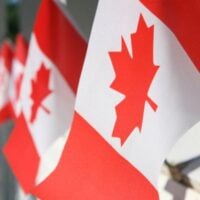Deadline: 28-Apr-23
The Embassy of Canada in the Philippines is pleased to launch its annual call for proposals for the Canada Fund for Local Initiatives (CFLI).
The CFLI is a program designed to support small-scale, high-impact projects in developing countries, which align with Global Affairs Canada’s thematic priority areas for engagement. The program is directed at projects conceived and designed predominantly by local partners. Projects are selected and approved by the relevant Canadian embassy or high commission. The CFLI also serves to support positive bilateral relations between Canada and recipient countries and their civil societies, by deepening contacts and supporting local endeavours.
Thematic Priorities
All projects must have a strong advocacy component and align with at least one of the following CFLI thematic priorities:
- Environment and climate action, potential areas include: climate change adaptation and mitigation, coastal biodiversity protection, environmental conservation, and supporting sustainable practices of indigenous peoples.
- Inclusive governance, including LGBTQ2 rights, democracy, human rights, and media freedom.
- Gender equality, with a focus on supporting women’s political participation and combatting gender-based violence.
- Peace & security, including upholding the rule of law at sea, and engaging women and youth in peacebuilding; and
- Human dignity with a focus on combatting child sexual abuse and exploitation.
Funding Information
- The average CFLI contribution is $30,000 Canadian Dollars (CAD$100,000 is the maximum allocation amount for a project eligible under CFLI).
Eligibility Criteria
- Eligible recipients include:
- Local non-governmental, community and not-for-profit organizations,
- Local academic institutions working on local projects,
- International non-governmental organizations working on local development activities, and
- Municipal, regional or national government institutions or agencies of the recipient country working on local projects.
- The majority of CFLI funding is to be directed toward local civil society organizations (including non-governmental organizations) and other institutions working at the local level. Other entities, such as international, intergovernmental, multilateral and regional organizations may be eligible for funding, provided they are working with local partners and on local projects that are consistent with the objectives of the CFLI. Similarly, municipal, regional and national government institutions may receive funding, provided that their projects are essentially local in nature. The CFLI is always looking to fund innovative projects that deliver measurable results.
- In alignment with this policy, the CFLI project application process now requires a gender-based analysis (GBA). The purpose of this change is to enhance the gender equality outcomes of the CFLI program.
- A GBA will require applicants to:
- consider how women, girls, men, and boys are affected differently by the problem their project is aiming to address, ensuring, at the same time, that the project does not cause harm
- consult women and/or girls in the development of their project proposal
- ensure that the views of those women and/or girls inform the project’s design
Criteria
The Embassy’s CFLI Committee will select projects for approval based on an assessment of the following merit criteria. Proposals must be:
- Relevant: The application should clearly describe how the proposed project activities are aligned identified CFLI thematic priorities, and how it will contribute to relevant advocacy and policy-making.
- Effective: The application should clearly and precisely define the problem to be solved and how the project activities will help to address that problem.
- Realistic: The budget should be coherent and demonstrate clearly that the funds being requested will be used efficiently.
- Sustainable: The products, services, benefits and/or impacts generated by the project should last beyond the period being financed by the CFLI.
For more information, visit Embassy of Canada in the Philippines.









































